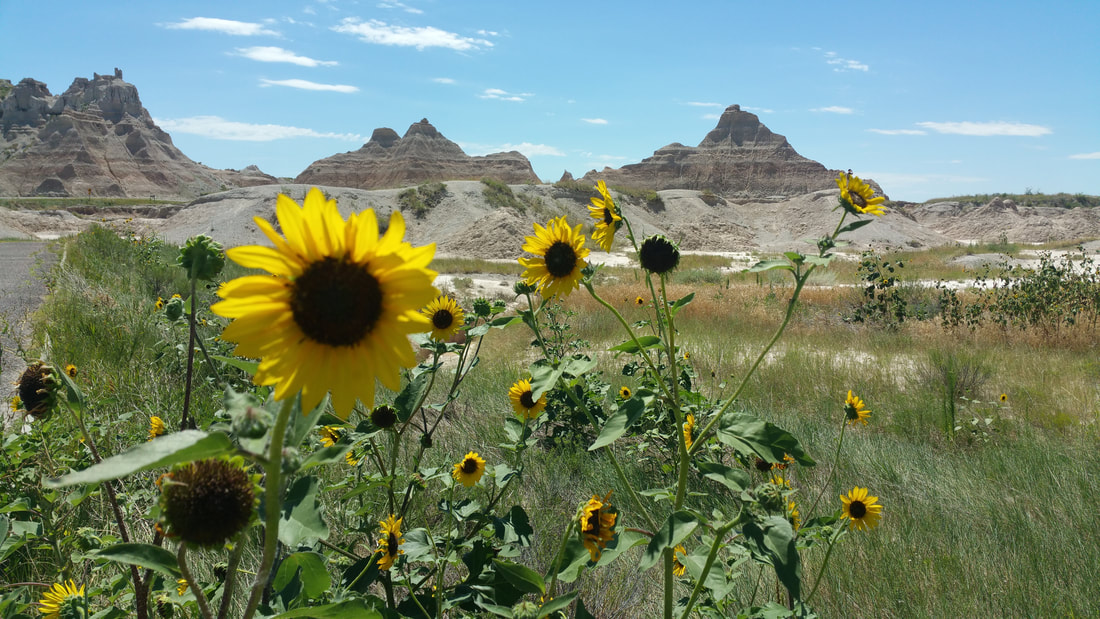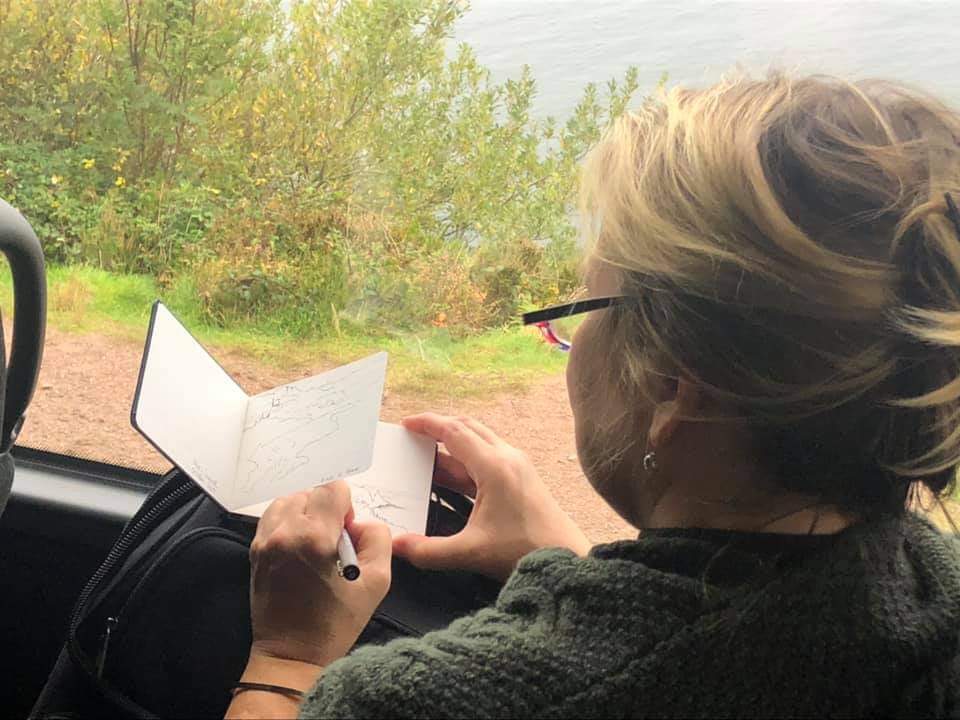 And in this he showed me something small, no bigger than a hazelnut, lying in the palm of my hand, as it seemed to me, and it was as round as a ball. I looked at it and thought: What can this be? I was amazed that it could last, for I thought that because of its littleness it would suddenly have fallen away into nothing. And I was answered in my understanding: It lasts and always will, because God loves it; and thus everything has being through the love of God. —Julian of Norwich, Showings As I sit down to write this column, the news is filled with scenes of the catastrophic flooding in Pakistan, with over 1,000 people dead, one-third of the country devastated, and thirty-three million people affected by floodwaters. High temperatures, warming oceans, and record rainfall contributed to this tragedy. Anjal Prakash, research director at the Indian School of Business in India’s Hyderabad and one of the lead authors of the Intergovernmental Panel on Climate Change report, says “We have got to stop using the word unprecedented because every time a new precedent is being formed in South Asia. The impact of warming on Himalayan glaciers, which are retreating very fast, is much faster than we earlier thought.” (Chaudhary, Pakistan Flood, Aug. 29, 2022, Bloomberg) Here in Eastern Kentucky we have witnessed the horrors of flooding exacerbated by deforestation, mountain-top removal, and climate change. Had we heeded warnings from scientists dating back to the 1960s and 1970s, we might be in a different position in 2022. Had the church taken seriously our calling from God to be co-creators and stewards of the earth, the divides in popular opinions might not be so stark. But those decisions are in the past. This week the National Association of Evangelicals released an updated version of Loving the Least of These: Addressing a Changing Climate. The publication deftly connects the science of climate change with the biblical imperative to care for the poor. The president of the NAE, Dr. Walter Kim, explains the motivation behind the report, “Our concerns and motivations are not political. They are deeply rooted in the biblical conviction about God as Creator of this universe and humanity’s responsibilities to care for the gift of this creation,” he said. “As followers of Jesus, we certainly are committed to God’s glory that’s revealed in creation and the stewardship that would be our responsibility in caring for God’s artistry.” Data from the Pew Research Center reveals an unsettling generational divide on issues of addressing climate change, with younger folks, Millennials (born 1981-1996) and Generation Z (born after 1996) reporting higher levels of engagement and concern over climate change than older generations. The generations which are leaving or who have already left church are the ones with higher levels of concern for climate change. If they do look at what the church is doing on climate change, they seldom find faith communities publicly engaging environmental justice issues. This trend breaks my heart. When I was considering the call to the pastorate at FCC Morehead, the presence and activity of the church’s Creation Care team encouraged me. The commitment of individuals on that team and beyond remains a source of hope and encouragement. While the pandemic has hampered many initiatives, we have continued to prioritize our work to care for creation, particularly this Appalachian landscape on which we live, work, and play. For the third year FCC Morehead will observe the Season of Creation during September. The ecumenical celebration began in 2000 with the Uniting Church of Australia and has expanded across the globe. The observances differ from denomination and country, but remain rooted in the hope of restoration and jubilee for the Earth. This season is “a time to renew our relationship with our Creator and with all creation through repenting, repairing, and rejoicing together.” I hope you will find ways to join in the celebration and to take action to care for this amazing planet which has been entrusted to us by our Creator.
0 Comments
To dwell means to belong to a given place.
--Christian Norberg-Schulz We shall not cease from exploration And the end of all our exploring Will be to arrive where we started And know the place for the first time. --T.S. Eliot Moving to a new place is disorienting. Things you took for granted, suddenly require more effort. Which direction is east? Where’s the grocery store? What’s my street address again? Although there are fewer unpacked boxes in my home, I’m still settling in, getting my bearings. I am busy learning the ways FCC Morehead does church together. This past week I learned what it’s like for students to move back into and how that changes the way the community feels. And I have yet to reprogram the radio stations on my car radio. (FYI, right now it’s set on WMKY.) Learning a new place takes time and intention. Our current social and economic systems make it easy to ignore the places in which we live. My Fred Meyer grocery shopper’s reward card from Washington state works at the Kroger in Morehead, because Kroger owns both. We can travel about the world, yet still eat at the same chain restaurants. Yes, I’ve been in a McDonalds in Athens, Greece and Frankfort, Germany; and perhaps more surprisingly a Krispy Kreme in Oxford, England. One of those things I’m discovering is that people who live here often name where they live by county. So, not only am I learning new towns and cities around here, but I’m often trying to figure out which direction Harlan county is from here or how far away Clark county is! I’ve learned we live in the Lower Triplett Creek watershed, and I’m slowing getting my bearings as to the different parts that make up our watershed. My dog Stoney and I have walked the trail around Eagle Lake, and just last week I enjoyed a picnic lunch near Triplett Creek. These are the living waters for those of us who call Rowan county home. In September our worship services will be rooted in the place where we live. Each Sunday we’ll focus on a different aspect of place: Forest, Land, Wilderness, and River Sundays. Rather than live stream our worship services from inside the church sanctuary, members of our congregation will be recording parts of our worship from around the area. You may hear and see a call to worship from Rodburn Hollow Park, a Scripture reading from the middle of someone’s garden, or special music from a porch front. This shift in focus of our worship in September gives you an opportunity to participate in a new way and we’ll be able to see the faces of our congregation as we worship together. If you have a phone that records video, that’s all it takes; no fancy equipment needed. Is there a special place you’d love to share with others? You can sign up to record a small piece of our worship from that spot. The more folks who participate, the richer our worship in September will be. To help out, email the church office, let me know, or contact our new worship chair, Alana Scott. I’m excited to see what we will create together! --Pastor Nancy |
AuthorA native of Illinois, Rev. Nancy Gowler lived for 26 years in the Pacific Northwest. She joined the ministry of First Christian Church in Morehead, KY, in July of 2020. Archives
January 2023
Categories
All
|

 RSS Feed
RSS Feed
